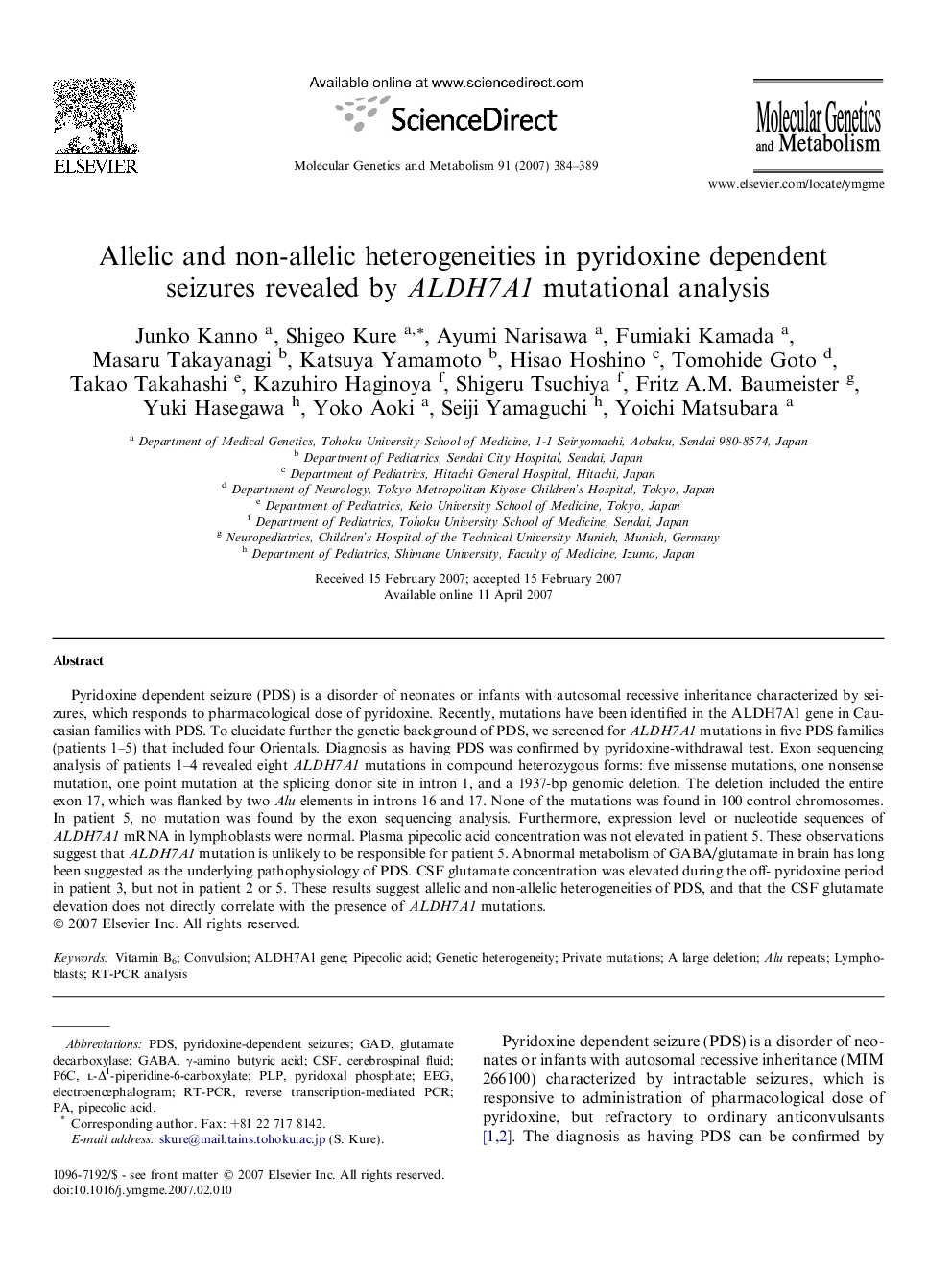| Article ID | Journal | Published Year | Pages | File Type |
|---|---|---|---|---|
| 10834657 | Molecular Genetics and Metabolism | 2007 | 6 Pages |
Abstract
Pyridoxine dependent seizure (PDS) is a disorder of neonates or infants with autosomal recessive inheritance characterized by seizures, which responds to pharmacological dose of pyridoxine. Recently, mutations have been identified in the ALDH7A1 gene in Caucasian families with PDS. To elucidate further the genetic background of PDS, we screened for ALDH7A1 mutations in five PDS families (patients 1-5) that included four Orientals. Diagnosis as having PDS was confirmed by pyridoxine-withdrawal test. Exon sequencing analysis of patients 1-4 revealed eight ALDH7A1 mutations in compound heterozygous forms: five missense mutations, one nonsense mutation, one point mutation at the splicing donor site in intron 1, and a 1937-bp genomic deletion. The deletion included the entire exon 17, which was flanked by two Alu elements in introns 16 and 17. None of the mutations was found in 100 control chromosomes. In patient 5, no mutation was found by the exon sequencing analysis. Furthermore, expression level or nucleotide sequences of ALDH7A1 mRNA in lymphoblasts were normal. Plasma pipecolic acid concentration was not elevated in patient 5. These observations suggest that ALDH7A1 mutation is unlikely to be responsible for patient 5. Abnormal metabolism of GABA/glutamate in brain has long been suggested as the underlying pathophysiology of PDS. CSF glutamate concentration was elevated during the off- pyridoxine period in patient 3, but not in patient 2 or 5. These results suggest allelic and non-allelic heterogeneities of PDS, and that the CSF glutamate elevation does not directly correlate with the presence of ALDH7A1 mutations.
Keywords
Related Topics
Life Sciences
Biochemistry, Genetics and Molecular Biology
Biochemistry
Authors
Junko Kanno, Shigeo Kure, Ayumi Narisawa, Fumiaki Kamada, Masaru Takayanagi, Katsuya Yamamoto, Hisao Hoshino, Tomohide Goto, Takao Takahashi, Kazuhiro Haginoya, Shigeru Tsuchiya, Fritz A.M. Baumeister, Yuki Hasegawa, Yoko Aoki, Seiji Yamaguchi,
